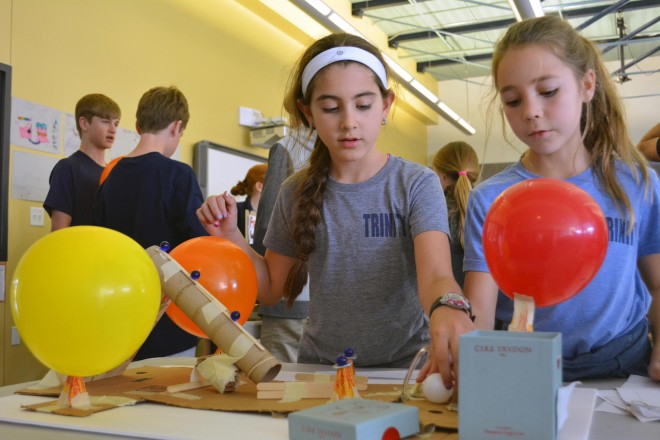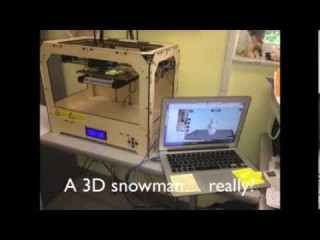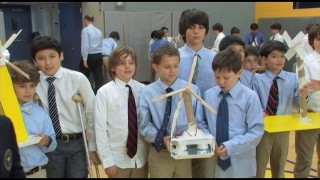Trinity Episcopal School recently had its first school-wide STEAM (science, technology, engineering, arts, math) celebration where students constructed “fun machines” out of recycled materials using an iterative design cycle. Students worked in cross-divisional groups (kinder with 8th graders, 4th with 5th, etc.) to construct a “fun machine”; an invention that people could enjoy by playing or interacting with. Many of the machines had moving parts and were similar to arcade games, miniature amusement park rides, or musical instruments.
To build their fun machines, students employed a design cycle comprising five steps – imagine, design, build, test, and improve. Students were given thirty minutes for each phase of the cycle, starting with the imagine phase where students saw some videos and nature-inspired images to get them thinking. Then, students entered the design phase where they sketched their ideas.
For the build phase, students went to the “marketplace”, where they could spend a budget of 100 points on various building materials, including cans, bottles, paper clips, and cardboard. They purchased what they needed and began assembling their creations. If they needed help with a tricky task (i.e. drilling, using X-ACTO knives) then they went to the “Fabrication Station”, which was a booth where teachers would safely complete the tasks. Finally, students tested and improved their ideas, making any final tweaks.
During lunch, the entire school received a presentation from Mr. Chad Johnson, the architect who designed Trinity’s middle school buildings. He talked about how as a kid he became fascinated with the idea of putting things together by playing with Legos, an Erector Set, and the game Mouse Trap. He told students how this became a lifelong passion for him, and eventually a career.
Finally, students interacted with each other’s fun machines, reflected on what they had learned, and thought about ideas and hopes for future design challenges.


